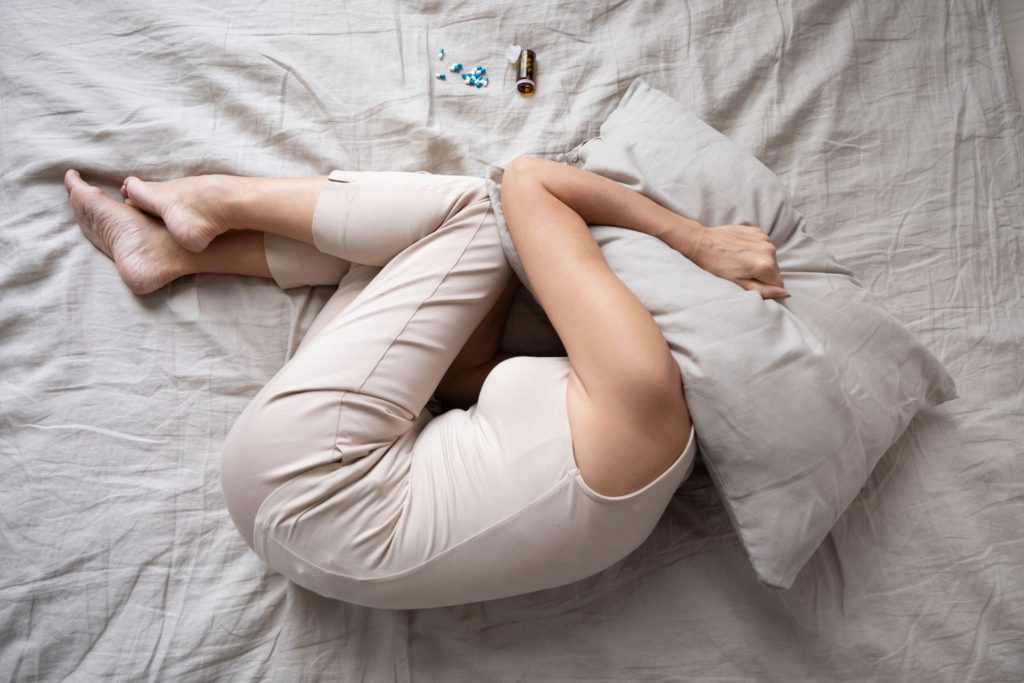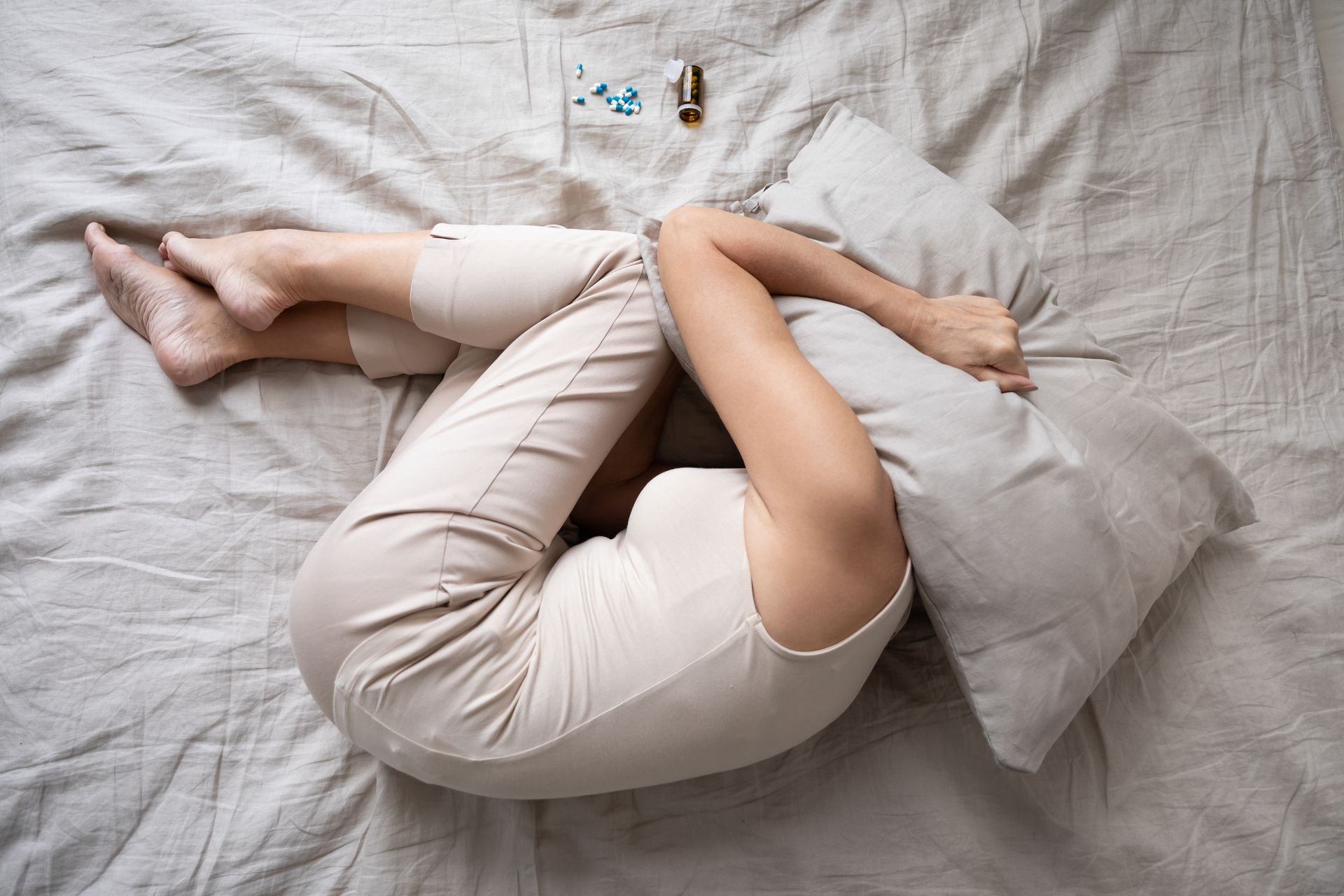Is There a Correlation Between Anxiety and Addiction?

Nobody likes having anxiety. It’s a sense of panic that can ruin your ability to focus on what’s important, which may harm your career, relationships, and more.
While we all deal with it from time to time, it’s not something everybody can easily manage. Sometimes, people dealing with anxiety might turn to substances as the solution.
Is there a correlation between anxiety and addiction? Yes. There is. And we want to help you understand why.
What exactly is anxiety?
Anxiety is an overwhelming feeling of stress, doubt, or worry. It can be something you experience over serious life situations or even daily occurrences.
Everyone experiences anxiety. You might feel it when rent approaches and you’re struggling to make ends meet, before that big job interview, or in chaotic driving situations.
Some people deal with it more often than others, though. They can be feeling a crippling level of anxiety at all times. Their constant anxiety can be a significant stress cause in their life that’s affecting their emotions or even mental illness.
Is anxiety linked to addiction?
Unfortunately, anxiety can easily be linked to addiction. As a result, many people rely on some form of coping mechanism to deal with their anxiety. In some cases, that might be a stress ball, support animal, or a hobby that distracts them from the current situation.
In other cases, people dealing with anxiety turn to substances that help calm their nerves. For example, alcohol after a long day’s work, cigarettes after a stressful situation, and medications meant to treat anxiety might all be abused because of this. After abusing these substances becomes normalized, an addiction will quickly form.
How does substance use affect anxiety?
Something to understand is that someone using drugs to deal with anxiety likely isn’t chasing a high. It’s because the drugs numb their emotions, helping them to feel at ease.
The effects provide a short-term solution, and the immediate relief might work wonders for their emotional state. However, this approach does have detrimental long-term effects.
When anxiety is masked like this, it prevents the person from building up the ability to overcome their anxiety, which will have an adverse effect. Their ability to deal with anxiety will lessen, and they feel the need to continue using more frequently. This is an addiction as it is a form of dependency on a substance.
What if a person is prescribed drugs for their anxiety?
The situation can be confused when a person has prescribed medication that helps with their anxiety. After all, a doctor is instructing them to use this drug.
Well, even then, the drugs can be abused. The person may very well build up a dependency on their medication and won’t be able to handle the daily situations without it. Therefore, it should be taken just as seriously as when someone who hasn’t prescribed those drugs begins to abuse them.
Other options to manage anxiety
Dealing with anxiety is hard. It is something we all deal with, though. So, it is something you can get through without having to rely on drugs.
Below you will find a list of seven things you can do to not only manage your anxiety but combat it as well.
1. Limit the use of caffeine
Everyone loves a cup of coffee, but too much can spike anxiety. Drinking less will allow you to maintain stable emotions throughout the day. This might also help you get on a good sleeping pattern, which will also help you combat anxiety.
2. Stop relying on alcohol/drugs
Don’t turn to drugs and alcohol as means to escape. Instead, focus on building yourself. Remember, substances only mask the problem, and that can be detrimental to your growth over time.
3. Face adversity
Stop avoiding those situations that make you anxious. Diving in, finding the solutions, and learning what you can do better will help reduce anxiety.
4. Take a break
Stop forcing your way through the day. If you feel yourself becoming overwhelmed or being influenced by anxiety, take some time to cool off. Go for a walk, exercise, or do anything that allows you to recharge mentally.
5. Don’t focus on imperfections
Don’t think about everything you didn’t do right. Everyone makes mistakes. Look at the things you had success with. Even if they are small, they just might provide the motivation you need to improve.
6. Talk to someone
You don’t need to bury your emotions. Talking to someone can be extremely helpful. They can offer insights into improving things that you’re anxious about and providing the positive reinforcement you need to grow.
7. Write down your thoughts.
External advice is great, but nobody knows you better than yourself. So write down your thoughts and what’s making you nervous. You just might have the solution jump right out at you.
We know that dealing with anxiety is tough, and nobody expects you to overcome it overnight. However, it does take time, and you should only take small steps to improve as overwhelming yourself with the need to make vast improvements can aggravate the situation.
We also aren’t saying that everyone dealing with anxiety will form a drug addiction. It’s just an unstable mental state that can drive people to extremes. If you see yourself, or anyone else using drugs to cope with it, it is something to take seriously.

